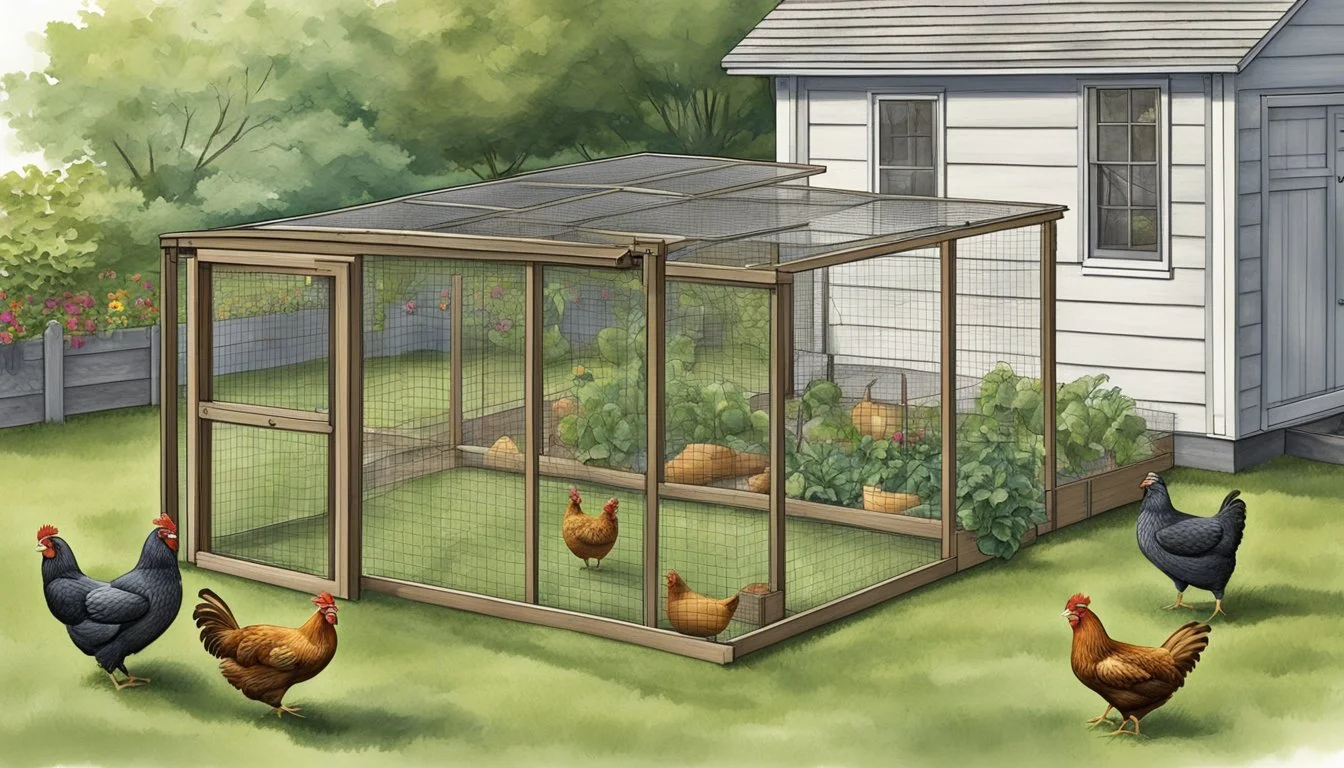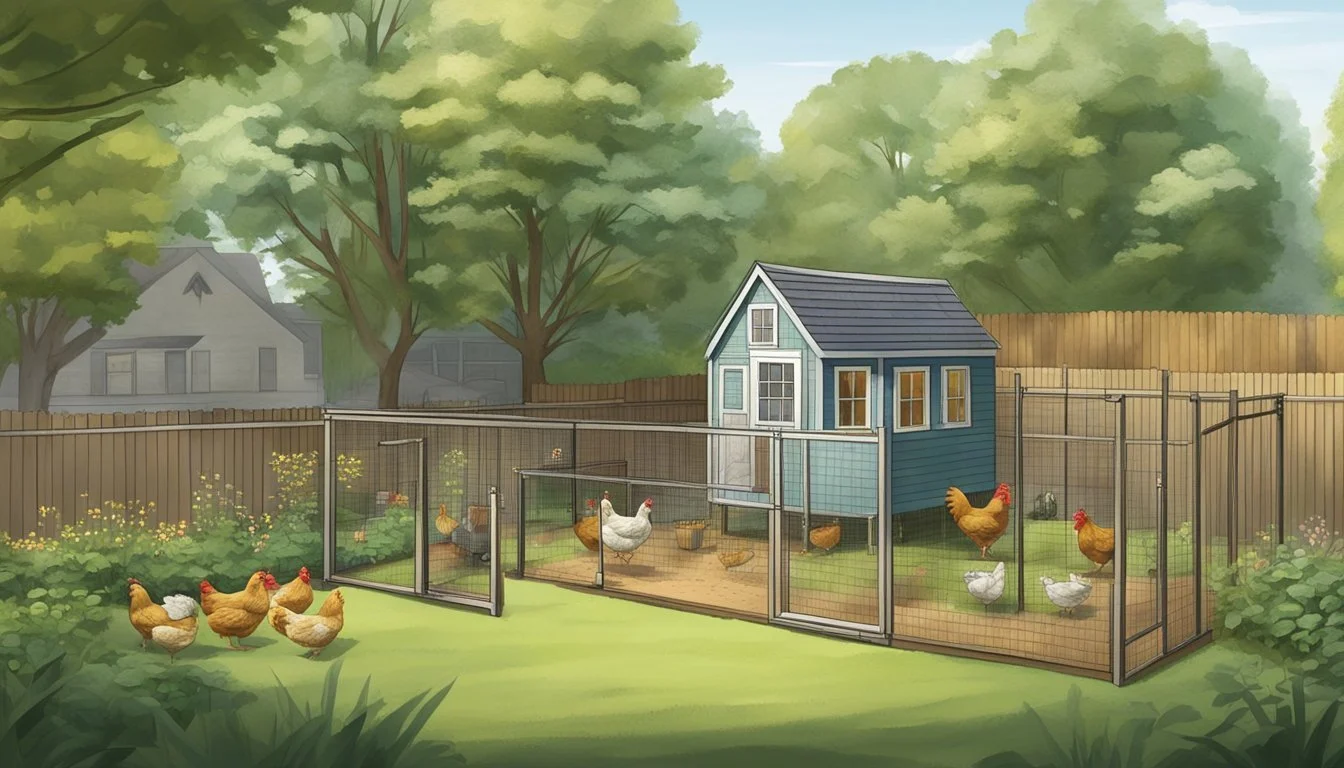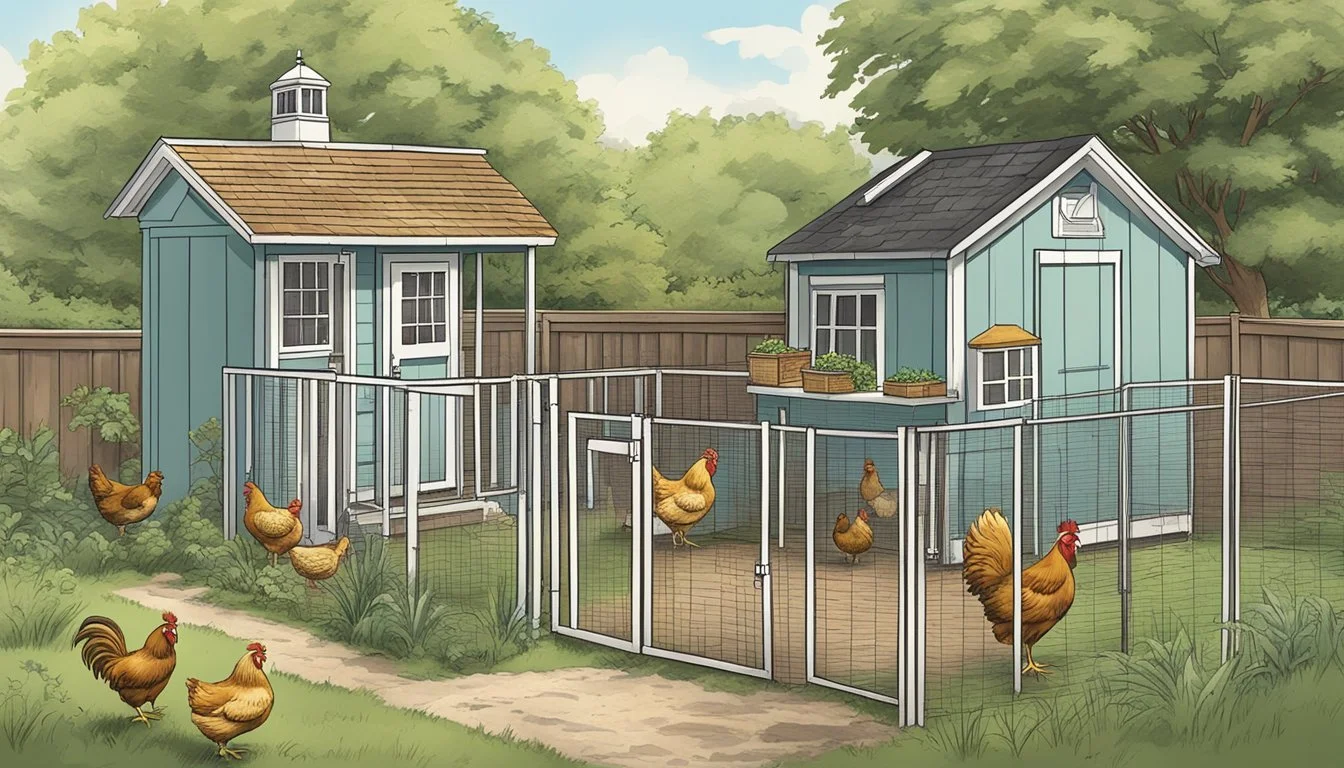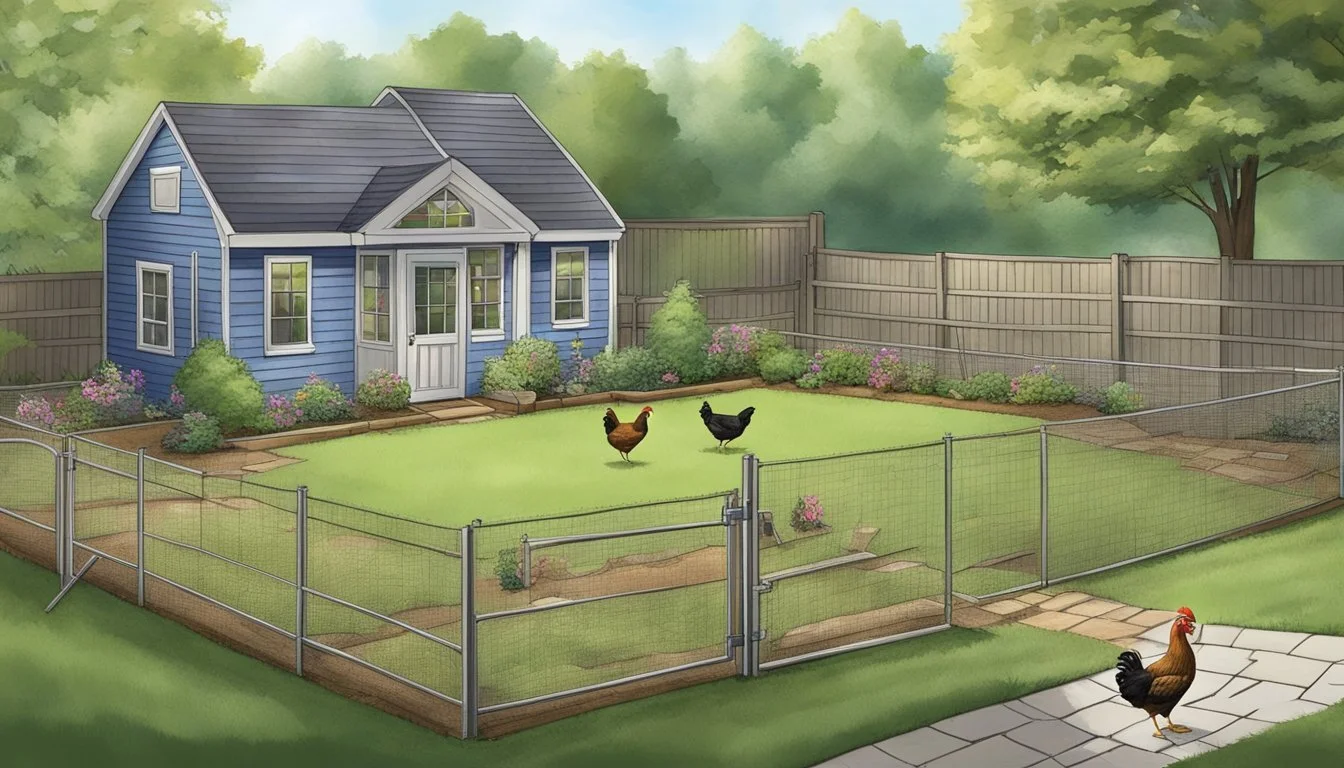Keeping Backyard Chickens in Hartford, CT
Essential Guidelines for Urban Poultry Farming
Keeping backyard chickens has become increasingly popular among residents in urban and suburban areas alike, including those living in Hartford, Connecticut. The concept offers a slice of rural life by providing fresh eggs, natural pest control, and the joy of caring for these animals. In Hartford, the trend of raising backyard chickens is supported by city regulations that allow residents to keep chickens in residential areas, although it is essential to adhere to specific local guidelines to maintain harmony in the community.
Understanding the legal framework is crucial for any Hartford resident considering raising backyard chickens. Connecticut has a set of state and local laws that need to be followed. In Hartford, chickens are permitted in residential zones, but potential poultry enthusiasts should contact their local zoning department or homeowners' association to verify any additional requirements, such as the permissible number of chickens or the need for a permit. Moreover, adherence to good neighbor practices, such as managing noise and odor, can ensure a positive experience for both the chicken owners and their surrounding community.
The rules for keeping backyard chickens can vary slightly from one town to another within Connecticut. In nearby East Hartford, for example, residents are required to have a certain amount of land to keep hens—0.25 acres for three hens—with increasing acreage for more chickens, and roosters are prohibited. These regulations underscore the importance of understanding and complying with both state and town-specific ordinances to successfully and legally raise backyard chickens in Hartford and its surrounding areas.
Understanding Local Regulations
In Hartford, CT, keeping backyard chickens involves adhering to specific local regulations. These regulations are designed to ensure public health, animal welfare, and neighborhood harmony. Homeowners must be aware of the rules that apply to them, which may include chicken laws, zoning requirements, and permit obligations.
Hartford Chicken Laws
In Hartford, residents are allowed to keep backyard chickens within residential zones. It is crucial to understand that one cannot keep poultry in conditions that the director of health deems detrimental to public health or offensive to neighbors. Local ordinances must be checked for any updates, and residents should ensure compliance with all applicable laws.
State of Connecticut Poultry Guidelines
The State of Connecticut has its own set of guidelines that apply to poultry keeping. These state regulations are in place alongside any local laws, and compliance with both sets of rules is mandatory. Residents must also remain informed about state-wide health and welfare standards for backyard poultry.
Sanitation: Properties must be kept sanitary.
Shelter: Adequate shelter must be provided, protecting chickens from the elements.
Manure Management: Proper containment and disposal of manure are required.
Zoning and Property Considerations
Zoning regulations are a critical aspect of backyard chicken keeping in Hartford, Connecticut. Homeowners must consult their local zoning department or homeowner's association for detailed requirements specific to their neighborhood or subdivision.
Property Size: Minimum property size may be stipulated for keeping chickens.
Visual Screening: Chicken structures should be visually screened from neighbors.
Fencing: Enclosures must adequately secure the chickens.
Residents of East Hartford are required to have a permit and a minimum of 0.25 acres to keep three hens, while roosters are prohibited. West Hartford and other towns may have their own unique zoning laws and permitting requirements, and thus, it is essential for residents to consult their local authorities.
Keeping backyard chickens in Hartford, CT, is subject to a combination of state guidelines, local ordinances, and zoning requirements. By understanding and adhering to these regulations, residents can responsibly enjoy the benefits of raising poultry in their backyards.
Setting Up Your Chicken Coop
In Hartford, CT, setting up a chicken coop requires consideration of local regulations and attention to detail. It is essential to choose the correct location, design a coop that meets your chickens' needs, and maintain a clean environment.
Choosing the Right Location
Selecting an ideal spot for a chicken coop involves considering sunlight exposure, drainage, and proximity to your home. The coop should be placed in a well-draining area to avoid excessive moisture that can lead to unsanitary conditions. It should also receive enough sunlight but have shaded areas to protect chickens from excessive heat. The distance from the house should be close enough for convenience, but far enough to keep away any noise and smells.
Coop Design and Requirements
The design of a chicken coop must ensure the safety and comfort of the birds. The enclosure should provide at least 3-4 square feet per chicken, have proper ventilation, and be insulated for weather variations. Here are some specific needs to meet:
Security: Strong latches to prevent predators from accessing the coop.
Nesting Boxes: One box per 3-4 hens, filled with straw or shavings.
Roosting Bars: Ample space for all chickens to roost comfortably at night.
Feeding/Water Stations: Easily accessible and refillable.
Keep in mind that certain materials, such as hardware cloth, are more predator-proof than chicken wire.
Maintaining a Clean and Sanitary Coop
A clean coop is vital for preventing disease and odors. Proper maintenance includes:
Regular Cleaning: Remove waste and refresh bedding materials weekly.
Deep Cleaning: Schedule a thorough clean every few months with disinfectants suitable for coops.
Pest Control: Use diatomaceous earth or other methods to keep mites and pests at bay.
Developing a consistent cleaning routine will ensure a healthy environment for your backyard chickens.
Chicken Care and Management
Responsible chicken care and management in Hartford, CT, necessitates a structured approach to daily maintenance, disease prevention, and protection against predators and pests. Ensuring the health and well-being of backyard chickens involves careful daily feeding routines, proactive health strategies, and vigilant predator control measures.
Daily Care and Feeding
Chickens require consistent access to fresh water and a balanced diet for optimal health. Their diet should include:
Layer pellets: For laying hens, which provide essential nutrients.
Grit: To aid in digestion.
Fresh fruits and vegetables: As occasional treats.
Feeders should be kept clean and positioned above the ground to prevent contamination. Waterers must be refreshed daily to avoid the spread of diseases.
Health and Disease Prevention
Preventing disease is paramount for maintaining a healthy flock. Key practices include:
Regular vaccinations: Consult with a local veterinarian for appropriate vaccinations.
Parasite control: Perform routine checks and treatment for mites, lice, and worms.
Coop hygiene: Regularly clean and disinfect the coop to reduce the risk of disease and deter rodents.
Prompt attention to any signs of illness, such as lethargy, respiratory issues, or changes in egg production, can prevent the spread of disease within the flock.
Handling Predators and Pests
An effective strategy for predator and pest control includes multiple layers of defense:
Secure enclosure: Ensure the coop is robust and gaps are sealed to prevent entry by predators and rodents.
Fencing: Use predator-proof fencing around the coop and run.
Regular checks: Inspect the coop and surrounding area frequently for signs of attempted intrusion by predators or pests.
By taking these calculated steps, owners can protect their flock from common predators like raccoons, foxes, and hawks, as well as pests like rats and mice that can introduce disease.
Legal Aspects of Chicken Keeping
Keeping backyard chickens in Hartford, CT, entails adhering to specific legal requirements to ensure compliance with local ordinances and maintain good relations with neighbors.
Permits and Ordinance Compliance
In Hartford, residents are required to obtain a permit before they can legally keep chickens. This requirement ensures that all chicken keepers adhere to the standards set by the local government. The permit comes with a one-time fee, signifying the keeper's commitment to following chicken laws and ordinances. The Hartford City Health Department can be contacted for additional information regarding the permit process.
Coop and enclosure requirements are outlined under Hartford's chicken ordinances. A chicken coop must be clean, dry, and secure to protect the birds and prevent rodents and other pests. Furthermore, it must comply with the zoning requirements specific to residential areas to ensure that the keeping of chickens does not affect the local environment or community negatively.
Nuisance and Neighbor Relations
Chickens must be kept in a manner that does not create a nuisance for neighbors. This includes maintaining a sanitary condition on the property and ensuring it is properly fenced in to prevent chickens from wandering off. The coop should provide adequate protection from the elements and also have a structure to contain the manure.
In Hartford, keeping roosters is prohibited within city limits due to the potential noise disturbance they may cause, which further emphasizes the importance of neighborly relations. Additionally, any condition deemed by the director of health to be detrimental to public health or offensive to the neighborhood is unlawful.
Residents are encouraged to act responsibly and courteously, ensuring that their chicken-keeping practices do not infringe upon the peace and enjoyment of their community.
Understanding the Limits
When considering the keeping of backyard chickens in Hartford, CT, prospective poultry owners must first acquaint themselves with the local ordinances that regulate the number of chickens allowed, rooster prohibitions, and the distance requirements from property lines.
Maximum Number of Chickens Allowed
In Hartford, the local ordinances permit the keeping of chickens on residential properties with certain limitations to ensure the welfare of the animals and the community. However, specific numbers and acreage requirements may vary by locality within Connecticut, making it important to consult Hartford's municipal code or contact local authorities for exact figures and rules.
Rooster Regulations
Due to noise concerns, the city of Hartford prohibits the keeping of roosters within city limits. This is to maintain a peaceful environment as roosters are known for their crowing, which can be a disturbance, especially in early morning hours.
Distance from Property Lines
The ordinance also requires that chicken coops and enclosures are set at a specific distance from property lines, safeguarding neighborly relations and promoting cleanliness. Coops must be designed to prevent contact between chickens and wild birds or animals, and should be regularly maintained to avoid odor and pest attractions. Owners should verify exact setback requirements with Hartford's zoning regulations to comply with these provisions.
Community and Environmental Impact
Raising backyard chickens in Hartford, CT, has significant implications for both the community and environment, requiring residents to maintain sanitary conditions and manage potential nuisances.
Mitigating Odors and Noise
In order to address odors and noise, owners must keep chicken coops clean and regularly remove waste, which can prevent the buildup of unpleasant smells. Noise can be mitigated by omitting roosters from backyard flocks, as they tend to be louder than hens. Local chicken laws mandate that residents adhere to these practices not only for the comfort of their neighbors but also to ensure compliance with sanitary regulations.
Odor Control:
Routine cleaning of coops.
Proper waste management.
Noise Control:
Avoid keeping roosters.
Provide proper shelter to minimize stress in chickens, which can lead to noise.
Promoting Good Neighbor Practices
Considering the close proximity of homes in Hartford, promoting good neighbor practices is pivotal. Homeowners are encouraged to position chicken coops away from property lines and to utilize visual barriers. These steps help maintain neighborhood aesthetics and minimize disturbances.
Good Neighbor Practices:
Coops situated away from adjoining properties.
Use of visual barriers like fencing or vegetation.
Sustainability and Eco-Friendly Tips
Sustainability is an important consideration for backyard chicken raisers. Chickens can contribute positively to local ecosystems by consuming food scraps and providing natural fertilizer in the form of manure. Additionally, hyper-local egg production reduces carbon footprints compared to store-bought eggs transported from far-flung locations.
Sustainability Practices:
Feed chickens household scraps: Reduces food waste.
Utilize chicken manure: Enhances garden soil fertility.
With mindful practices, residents of Hartford can ensure their backyard chicken operations benefit their community and environment.







